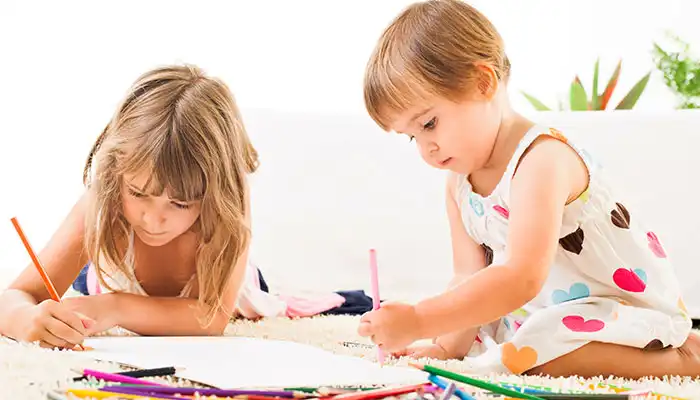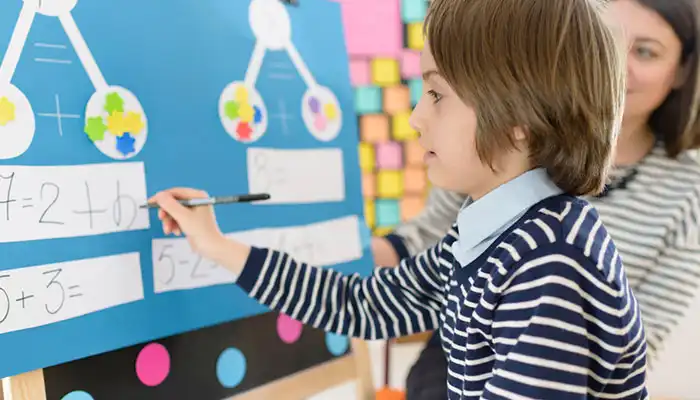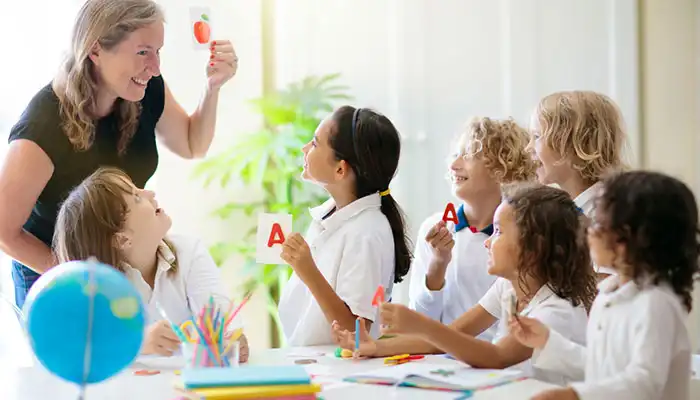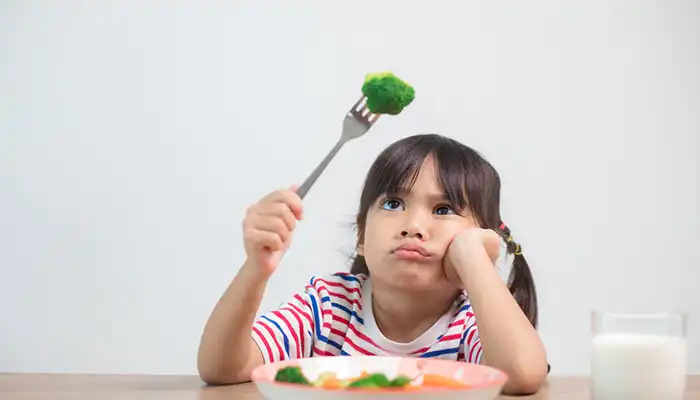The Ultimate Guide to Free Printable Worksheets for Kids Learning
Free printable worksheets for kids learning are the answer to everything. If you’re a parent, teacher or a home tutor, I’m sure you’ve thought: ‘How do I keep children on task, but make sure they’re learning?’ and felt like you’re walking a tightrope between not enough fun and not enough education. But the thing is, the printable worksheets for kids learning really make it a lot easier. They offer a flexible, structured and educational environment for children to learn and can be much less pricey than other learning materials.
Why Free Printable Worksheets for Kids Learning Are Essential
Free printable worksheets for kids learning so great for kids, you ask? Well, it’s nothing to blink at—kids have boundless energy, and they can be a tough bunch to keep on track. Good thing you’ve got interactive, interesting and educational worksheets at your disposal, as they can channel that energy into something good.
Picture a grey Friday afternoon, and your child sitting around, bored. You grab a free worksheet – one that requires the child to solve a puzzle, trace letters or count objects – and instantly you have turned a lull in the day into a learning opportunity. Better yet, because they are free, you can download new ones whenever you sense a child’s interest beginning to wane.

Types of Free Printable Worksheets for Kids Learning
All kinds of printable worksheets target different underlying skills, and are critical for children to learn. When it comes to your child’s ability to learn, the right type of worksheet can make a world of difference. Let’s take a closer look at some of the types of free worksheets for kids learning that you should be open to integrating into your child’s learning toolkit.
-
Math Worksheets
Having to develop math skills can be a challenge for many children and worksheets can help a lot. Math worksheets emphasize basic skills as number recognition up to number 20, basic arithmetic, number and shape recognition, plus problem-solving.
Scenario: My child struggles with addition. When faced with a worksheet featuring bright photographs of apples in which they have to supply the correct answer (two apples, four apples, etc), or stars to count, the experience of learning becomes less threatening. The desire to make maths more attractive as a science has a long intellectual lineage.
These worksheets typically have fill-in-the-blank sections that include activities such as counting, matching up numerals and being able to add or subtract by one or two. The idea? Make math a fun way to play and learn.
-
Literacy and Reading Worksheets
There is no doubt that if there is one skill that is the basis for all future learning, it is literacy. Worksheets on literacy and reading was created to help kids in their reading comprehension, to teach them new words, and identify their letters.
Think of a pre-k worksheet that asks your child to trace the letter B and then match it to items that begin with the letter B. Your child is learning how to write a letter, but they are also linking that letter to sounds and words – which is part of reading.
They usually contain tracing lines of the alphabet, matching pictures with words, and simple activities about understanding and remembering what they read.
-
Science Worksheets
Science is keen to examine, explore and wonder about things. Science worksheets are a great tool to help kids maintain this curiosity. The worksheet has scientific concept in each of the following: nature, animals, weather and simple experiment that kids can perform at home.
Consider a worksheet in which your child is asked to colour the roots, stalk and leaves, or match an animal to its habitat. This isn’t just about playing with colours and pictures – this is about scientists and researchers working together to describe the world and how it works.
Science worksheets tend to involve the following types of activity: labelling diagrams; doing simple experiments; and answering questions that force the kid to think hard about the natural world.
-
Art and Creativity Worksheets
‘Arts and crafts’ is not just play. Art helps kids express themselves, build their imagination and fine motor skills. Arts and creativity worksheets worksheets for kids.
Think about your child colouring in a butterfly or drawing a recreation of a famous painting: he’s not wasting time. He’s exploring forms, colours, and how to control his hands and fingers.
She would send the worksheets: colouring pages, drawing prompts, get-crazy-and-spill-your-guts sort-of stuff.
-
Critical Thinking and Puzzles
Problem solving is a life skill that we will use throughout our lives, and critical thinking worksheets encourage this and other life skills by centering on worksheets that develop this ability – from logic puzzles to mazes and many more activities to help kids think more critically.
Imagine your child working his way through a maze or solving a pattern by looking for the next image in a series of geometric shapes. What is he doing? He is strengthening his ability to think logically, to detect patterns and solve problems – exactly the kinds of skills he’ll need in school and in life.
Worksheets on which the activities consist of word searches, matching games and brain teasers have become so popular that they’ve spawned countless internet sites.
Where to Find Free Printable Worksheets for Kids Learning
Now that you know the exact sorts of worksheets you’re looking for, where can you find them? Here is a list of our top free printable worksheets for kids learning.
-
Educational Websites
No shortage of free worksheet websites offer high-quality materials that you can print off at home:
- Twinkl: Parents and teachers love it, which is a good indication. Twinkl’s worksheets can keep your little learner busy with printable activities for maths, literacy, science, art and more, all completely free printable worksheets for kids learning
- Education.com: Another great resource, this huge online worksheet library contains materials for every area of early education, from math and reading comprehension worksheets to art activities.
- Teachers Pay Teachers: Most resources on this site are for sale, but there are also thousands of Free printable worksheets for kids learning available created by teachers and tested in the classroom.
-
Local Libraries and Community Resources
Never forgot to make use of your local library, too, as it has lots of educational sources you can use for free, such as worksheets in printable form, either through online portals or physical books where you can photocopy from.
Libraries might have collections of resources that you can curate for your kids, worksheets that cover subjects from basic literacy to creative arts.
-
Schools and Early Learning Centres
Is your daughter in school? If so, her teacher is a valuable resource. Teachers have their share of hide-bound traditions and annoying habits, but at least in my experience most of them will provide you with some worksheets to send home with the kids to do. If you’re not sure what kind to look for, just ask your child’s teacher what the other kids are doing.
Kids’ worksheets are often used as homework supplements since they build on what your child is learning in class. Teachers and early-learning centres use them to reinforce topics. Using them at home will help your kids keep the momentum going and reinforce their studies.
Benefits of Using Printable Worksheets for Kids Learning
These have so many benefits that it would make sense for you to include them in your kid’s learning journey. Here’s why. Why Use Free printable worksheets for kids learning When Teaching Kids? Benefits of Free printable worksheets for kids learning When Teaching Kids.
-
Engagement and Focus
You have a structured approach to learning, which can keep kids focused and on track – all that structure certainly helps students stay on task. Having worksheets with activities that are relevant, interesting and, I hesitate to say fun, but that are at least better than doing nothing, matters.
Picture your child happily occupied slashing out a puzzle on a worksheet scattered with colourful squares: he’s not just fending off boredom, he’s learning in a way that’s stimulating yet fun.
-
Skill Development
There are different types of worksheets aiming at literacy ones, mathses, and even logical thinking ones. The child who uses the whole range of worksheets of the first type will learn more various skills that are indispensable for his future education.
Stick with the idea of your child filling in a math worksheet that asks him to count objects and write a number at the bottom of the page. It’s not just maths they’re practising – the pencil control used on those math pages, the timing needed to match up hand motion with eyes, the self-regulation of paying attention to directions and then doing them are skills that are developed by those pages, too.
-
Flexible Learning
The beauty of worksheets is that they are flexible: if your child wants to work on one in the morning, after school, or on the weekend, they can do so whenever it feels right for them. This flexibility means it is easy to weave in learning without it feeling like a chore.
Think about having the ability to hand your child a worksheet, quietly and quickly, the next time you need a quick quiet pastime. Whenever you need it, you can just dip into this bright, friendly, educational resource.
Tips for Maximising the Use of Printable Worksheets for Kids Learning
You have the worksheets – now what do you do with them? Here are some tips for how to make printable worksheets for kids learning productive.
-
Integrate into Daily Routines
Regularity is important when it comes to learning. Worksheet practice might become part of your child’s daily routine if they do it at the same time every day – when possible, first thing in the morning before school, or sometime in between, such as after breakfast. Or after lunch. Having a regular time for practice helps them to remember and practise what they are learning, and also makes it something they anticipate as part of their day.
If you make worksheets a regimen, then your child will learn to learn.
-
Combine with Hands-On Activities
Then there are worksheets – great unto themselves, but you can really extend a lesson by bringing in other activities. Follow up a worksheet on math skills with a chance for kids to count in the real world – toss a few counters on the floor and ask your child to count the counters. Or draw – have your child take a theme from whatever they’ve just read and apply it to the family doodle station. This will deepen the lesson by encouraging them to practise the skills they just worked on in a more traditional context within an activity.
For example, after your elementary school-age child completes a worksheet about plants, you could plant seeds together to see them grow – which helps the concepts learned on paper become more concrete.
-
Encourage Independent Learning
And the best thing about worksheets? They can actually help foster independence. Put a little ‘learning station’ together where your child has easy access to the worksheet, a pencil and some crayons, so he can work away while you’re cooking tea or doing the laundry. It’s a good way for children to gain confidence and get used to working independently.
Encouraging independent work helps the child develop the attributes of autonomy and competence that will be important as they mature.
-
Use Themed Worksheets
Variety is the spice of life, right? Keep things
Novel by using themed packs – Christmas or Halloween-themed worksheets at this time of year, or character-based worksheets featuring your child’s favourite people or TV shows. Hopefully, your child won’t reach for a worksheet all by themselves, but that shouldn’t stop you using this as a tactical intervention to keep learning fun and relevant.
Themed worksheets make learning material more meaningful by helping to connect it to real-world issues. Themes also make lessons more appealing and easier to remember.

How to Maximise Free Printable Worksheets for Kids Learning
When children use Free printable worksheets for kids learning, they’re an immensely adaptable resource… but how can you make sure that it’s having the positive impact you want it to? In this section of the guide, we’ll be focusing in on some strategies to help your child enjoy and benefit from learning even more.
Making Free Printable Worksheets for Kids Learning Interactive
Kids want to play with their school stuff — you shouldn’t have to cajole a kid into doing her worksheet, you should have to drag her away from it! Making your own Free printable worksheets for kids learning can be a fast and easy way to do that — here are our suggestions for how to make them even more fun.
- Add Movement: Don’t restrict learning to the chair. If your child has completed a worksheet about numbers, ask him to find that number of items around the house. ‘You counted five apples – now go find five toys.’ This kind of physical engagement cements the lesson in a fun, memorable way.
- Use everyday objects: After your child has traced a series of letters on a worksheet, try making those letters again using sticks, pasta or buttons. It’s tactile, crafty, and helps to reinforce what was learned in two dimensions.
- Turn Worksheets into Games: What isn’t a game? If your child completes a matching worksheet, cut out the matches and play memory with them on the floor. The more senses you put the learning into, the better your child will learn.
Building Confidence with Free Printable Worksheets for Kids Learning
That brings us to one of the greatest benefits of Free printable worksheets for kids learning: free worksheets allow your child to build confidence. Why does it take work for kids to build confidence? Because they need it nurtured in them.
- Start Small, Win Big: Worksheets that your child can manage will get things moving – and fast. Perhaps it’s a colour-by-numbers page, or a worksheet asking her to count to 25. Maybe it’s a simple cash-register worksheet that helps her with simple math. Whatever it is, those wins quickly add up. She starts to see learning as something at which she can be successful.
- Celebrate progress: Whenever your child completes a worksheet, it’s a victory! Give your kid credit for the effort: a sticker on a chart, or even just a high-five. These little acknowledgements go a long way toward developing a positive learning mentality.
- Take a Lead Role: As soon as the self-learning stage is comfortable, offer your child a choice as to which worksheet they’ll do next. This approach helps to build independence and internal motivation, important skills for learning.
Using Free Printable Worksheets for Kids Learning in Groups
Learning doesn’t have to be a solitary pursuit. Free printable worksheets for kids learning can be just as effective in groups, making them perfect for teachers to print out in classrooms, for kids’ group activities at playdates, or even for siblings to study together.
- Peer learning: If you have more than one child, have them do the worksheets together. An older child might help the younger with a tricky maths problem, or they might work together on a creative drawing. The children both benefit from learning from each other, and not just from what you’ve taught them. They’ll also be learning to work together.
- Races: Turn worksheet time into a race, against the table, against a sibling or parent. Who can finish the puzzle first? Who can trace the letters neatest? A competitive opportunity is an interesting one, and that excitement can help to motivate kids to try.
- Classroom Collaboration: You can also use printable worksheets as a learning aid in the classroom. For instance, after students have worked on an individual science worksheet, they can come together to answer questions and discuss their answers. This collaborative approach allows them to reinforce their understanding in a social atmosphere.
Overcoming Common Challenges with Free Printable Worksheets for Kids Learning
There’s a certain truth in the old saying that all good things come to an end. And the same can be said about your favorite Free printable worksheets for kids learning – at least all too often. Fortunately, we can also reveal how you handle even some of the most common teaching challenges.
- Kids have short attention spans. Split up a worksheet session into manageable mini-sessions of a duration that children can handle. It’s better to have 10 minutes of focused activity than to do something feebly for an hour.
- Worksheet fatigue: If your child starts to complain about worksheet time, shake it up: use a different type of worksheet, try more activities with movement, or take a brief break to get back to it later. Make learning fun and fresh, not rote and dull.
- Hesitant Substance: If your child is having a hard time with a certain type of worksheet – maybe it’s addition or reading comprehension – don’t persist. Switch to an easier worksheet of the same type, or a different one entirely. The fate of your child’s self-esteem, as with all of us, lies in maintaining an ability to avoid defeat.
FAQs: Addressing Common Concerns About Free Printable Worksheets for Kids Learning
So I will pass on some of the more common issues teachers and parents have with worksheets. First of all, they say they waste time. If you’ve ever looked at pages and pages of sheets for a project, you know what I mean. Some of them are not even relevant – not even the regulators can figure out the significance of some of those worksheets, can they?
- How do I know if a worksheet is too easy or too difficult?
Start with something easy, and see how your little one does. If they’re flying through it, make it a little tougher; if they look like they’re in a battlefield, go back to simpler worksheets and encourage their self-confidence.
- What if my child loses interest in worksheets?
Make it new. Introduce new material, gameplay, move it around, shake it up – make learning a kaleidoscope that doesn’t have them spinning endlessly in the same spot.
- Are digital worksheets as effective as printed ones?
There are advantages to both. Printed worksheets provide the tactile sensory experience that will benefit fine motor skills while, digital worksheets can make the process interactive in a different way. Use a mixture of both to keep them balanced.
- Keeping Free Printable Worksheets for Kids Learning Fresh and Fun
Variety isn’t just the spice of life – it’s the key to keeping your kids involved with printable worksheets for kids learning. Here’s how to do that:
- Themed Weeks: Each week can be a themed learning week during which you can make special worksheets about the week’s matter. This week can be ‘Space Week’ for all things planets and stars, and the week after might be ‘Animal Week’ with all things habitats and species. Kids are less exhausted as they always look forward to the adventure each week.
- Shuffle the Subjects: Don’t do too much of one type of worksheet. Move between maths, literacy, science, and art to give your child well-rounded development. This keeps the brain active and ensures that a lot of different skills are being nurtured.
- Use Reward: What child doesn’t like rewards? Have a simple reward system where, say, every fifth worksheet done will gain your child something special – like an extra bout of play time, or the choice of the family movie for the night. Rewards drive kids to immerse themselves into those less enjoyable worksheets too.
Final Thoughts
Free printable worksheets for kids learning can be so much more than boredom busters (you know, the kind that fills time that you don’t know what to do with). It can also be about creating a vibrant, engaging, and effective learning environment. Vary it. Make it interactive. And fall in love with learning all over again.



